Nanjing is the beginning of my relationship with architecture, and also witnessed the process of my indepth understanding of architecture. From the urban texture to the human history, from the simple residence in the old city to the device design bearing the memory of the war, the three years' study in the School of Architecture has made me have a deeper and deeper understanding of Nanjing. Therefore, this portfolio is not only a collection of projects I have designed, but also a summary of my study and life in Nanjing. I think of it as a stage summary, a starting point. I hope my architectural career can start from Nanjing and go to more cities.
「PRECEPTION OF BUNKER」 The body is the language of communication across time. As a city devastated by World War II, Nanjing bears great historical sorrow. The body memory is the best carrier to let us in peace feel the destruction of war. The physical oppression suffered by the soldiers in the bunker was replicated in modern people, and people began to rethink the war.

「VESSEL OF CITY」Open up the pipeline between the city and nature. Nanjing is a city surrounded by mountains, like an organism. When the road between the city and nature is blocked, the city has its drawbacks. By understanding the way people live and reconnecting them with nature, the whole city flows again.
「UNDER THE EAVES」The eaves of Nanjing's ancient houses give public buildings a new appeal. The space under the eaves naturally has the ability to gather people. The eaves characteristics of the historic district are given to the public space, which becomes the core of activities jointly created by the nearby residents.
「SPIRAL HOUSE」 As a new house in an old town, the first housing project was the starting point for my architecture studies. Respecting the layout characteristics of ancient Nanjing courtyards, the courtyard as the spatial core of the ancient courtyard is integrated into the residential scheme, with each house spiraling in series around the atrium.
EDUCATION
09.2017-06.2022 Nanjing University (NJU), Nanjing, China
Bachelor of Engineering in Architecture | GAP: 4.15/5.0
SHIXIAN BAO
Email: baosx212@outlook.com
Cell: +86 18852098865
'Architecture is a long practice. Be patient.' The tutor told me in the interview about changing my major from Administration to Architecture three years ago. And as he said, my understanding of architectural design has been enriching in the past three years’ practice.
I got motivation in 'practice'. The first practice in the construction festival taught me to notice the dimension of human figures and their material characteristics. And I learned that proper construction could maximize the advantage of the material. I perceived the environment in 'practice'. I visited classical Chinese gardens during college because of being obsessed with Chinese culture. The long winding corridor, the deep lake within reach and the mottled shadows of the gardens' trees could take my whole afternoon to feel. The dreamlike tours drove me to focus more on the relationship between the architecture and the site. I reflected in 'practice'. Besides the fitness in the situation, good architecture should become a vehicle for local culture and memory, which could arouse people's spiritual resonance and reflection. It asks the architect to deeply understand the local culture and translate that into the building, which is like baking process: grounding the wheat, adding the water and stirring, fermentation and baking. The bread's shape is far from that of grain, but wheat's aroma emits within each bite.
The rigorous teaching system and pioneering research direction of Manchester School of Architecture have inspired my enthusiasm for the future of architecture. The focus on climate change and urbanization attracted my attention in the beginning because I have been interested in architectural heritage. During my undergraduate, I also researched the Evaluation of Building Ventilation Performance, which is related to climate change. I hope to master excellent design skills and critical thinking during postgraduate and I would also bring excellent ideas and explorations to this innovative department.
The past three years in the School of Architecture inspired me a lot. The success and setbacks shaped who I am today. I take this time as short but precious practice in my long architecture career, just as my tutor told me, 'Architecture is a long practice. Be patient.'
EXPERIENCE
03.2022-05.2022 “Sensing the Peace”Exhibition of Design for the Memory of Nanjing as a City of Peace | Project: “PreceptionofBunker”
Involved in the whole curating phase, includes Design, Exhibiting, Constructing etc.


Organized by Institute for National Memory and International Peace Studies & School of Architecture and Urban Planning, Nanjing University
09.2020-04.2021 Research on Evaluation of Building Ventilation Performance (Group) Indoor Space Optimization Design of Nanjing Enclosed Dormitory Based on Ventilation Efficiency

Involved in the whole research phase, includes Data measurement, Environment simulation,Paperwriting etc.
Organized by College student innovation program, Nanjing University
09.2019-10.2019 “Dreamers” Construction Festival Competition in Hunan Province
First Prize (Group) | Project: “Fold a Dome of Heaven”
Involved in the whole design phase, includes Concept, Design, Constructing etc.
Organized by Changsha Natural Resources & Planning Bureau, Hunan University
HONOR & ACTIVITY
11.2019 Third Prize | The People’s Scholarship awarded by NJU
11.2018 Cultural & Sports Awards | The People’s Scholarship awarded by NJU
10.2021
Ancient Building Survey and Drawing
Involved in the whole phase, includes Surveying, Design, Mapping etc.
Organized by School of Architecture and Urban Planning, Nanjing University
08.2021 Practice of Construction Plant
Involved in the whole phase, includes Surveying, Design, Mapping etc.
Organized by School of Architecture and Urban Planning, Nanjing University

09.2018-06.2019
02.2018-06.2018
Deputy Head of Sports Department | School of Government, NJU In charge of various school sports event and avtivities.
Member of the Outward-Bound Department | Student Union of NJU
Helped with two university-level events’ preparation and organization.
SKILL
Software Proficient | Rhino, Revit, Photoshop, CAD, SketchUp, InDesign, Illustrator, Premiere, Microsoft Office Suite
Language Mandarin (native), English (fluent)
01 PRECEPTION OF BUNKER
Devices of Body Sensing in War Buildings




Individual Academic Work
Feb 2022 / Graduation Project
Course ID:29010220

Located in Nanjing, China
Supervisor: LU Andong
Email: alu@nju.edu.cn
Tel: +86 25 8359 3020
Bunker Ruins on the Zijin Mountain
As one of the important battlefields during the Battle of Nanjing, a large number of military blockhouses have been preserved on the Purple Mountain.A total of 75 of blockhouses exist and can be divided into six types, each with its own function, character and location
Distribution of Bunkers Categories of Bunkers






Postures
Perceptions in Bunkers








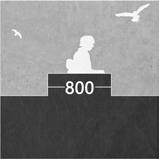
The interaction between the different Spaces in the bunker and the soldiers' bodies produced different perceptual experiences, which were important carriers of war memories. These senses include body posture, hearing, vision, and so on. Through the abstraction of these perceptions, we can better feel the destruction of human body caused by war.
Shooting Holes

The Translation
Posture, sound waves, vision and materials are modernized to help people experience rich sensory stimulation in a limited space. Through lightweight, modern translation, body perception can be condensed and combined.




Integrated Perceptions Installation (Constructed)





The Exhibition




The installation is located in the center of the pavilion, where the semi-enclosed space becomes a focal area for gathering and experiencing the entire exhibition.


The device combines a variety of motion states inside the bunker, including stoop marching and climbing upward. Using the scale data inside the bunker, the soldiers' physical experience inside the bunker was reconstructed to a true scale. At the same time, accompanied by the sounds and vibrations of the war and the sounds of the mountains, the process of transition from the oppression of war to the calm of nature is created.

Shooting Hole Simulator

The device simulates the visual perception of the firing port in the bunker, and the soldiers' visual experience of observing the world from inside the bunker is restored through the height of the window, the proportion of the window, the jagged edge and other elements.




Megaphone Installation
Sound Vibrating Devices



Hidden inside the device are several acoustic vibration devices, which come from the roar of guns and the song of birds in the forest. Through sound conduction and vibration, visitors can experience the installation in multiple dimensions.
The installation simulates the way soldiers in a bunker transmit information through a loudspeaker. The sound of the loudspeaker changes from gunfire to birdsong. Different heights of the loudspeaker are suitable for people of different ages, and the effect of war on human perception is restored from the perspective of hearing. The different height of the handset provides the possibility of experience for different age groups.


Reconnaissance Installation
The installation mimics the posture of soldiers looking up at enemy aircraft from inside a bunker, with a screen mounted on top that loops back images of the sky during battle, allowing viewers to recreate the posture of the body looking up at the scout.
Timeline Construction
The device is made of precast channel steel and steel plate, which is easy to disassemble and install. The prefabricated materials and structure greatly shortened the project time, while the steel frame provided sufficient stability for the installation.

The whole installation was completed in one week, including frame construction, skin installation, routing perforation, device testing and other processes. Multithreading at the same time, greatly save the cost and time.


The installation process is highly simplified, complete the prefabrication in the factory, simple and rapid installation on site, not only saves labor costs, but also greatly shortens the construction period.


STEP 1:Materials and frames were transported to the pavilion after preprocessing in the factory.


STEP 2:Confirm the location of the installation and assemble the three prefabricated frames together.







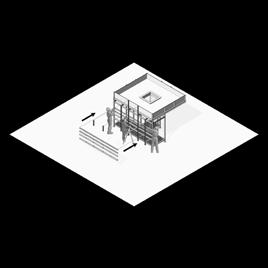







3: Install the pool and the floor.
STEP 4: Install the secondary structure in preparation for installing the panels.
STEP 5: Install all panels of the installation.
6:Install the iron ladder.






STEP 7: Install circuit system and debug equipments.

STEP 8:Installed the maintenance lids.
STEP 9:Tested the water resistance of the installation, cleaned and painted.
Sound of the earth...


























Feeling peaceful...




















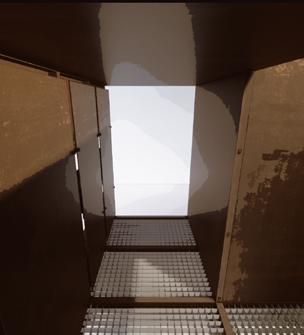 View from bunker
View from bunker
View from bunker
View from bunker
02 VESSEL OF CITY
Reconnection of the Inhabitants and the Nature
Individual Academic Work Nov 2021 / Architecture Design Ⅷ Course ID:29010100H Located in Nanjing, China Supervisor: TANG Lian Email: tanglian@nju.edu.cn Tel: +86 13770849401

The project is located at the junction of the city and the forest, and the residential area faces the forest across the street. Busy and fast urban arterial roads block people's routes to urban green Spaces, forcing the separation of nature and city. Residents have to cross the street in order to reach it.




RESIDENTS
The Zijin Mountain is a natural resource that Nanjing citizens cannot give up. It carries an important role of landscape, leisure and memorial. However, the city's expressways cut off access for residents at the foot of the mountain for recreation, forcing them to cross the road.
Through the statistics of local residents' activities, it is found that residents' daily activities and routes are hindered by the gray area in the center of the site and the fast road. Local residents hold a series of daily activities around the venue, including playing Musical Instruments, playing tennis and walking their dogs.


The Zijin Mountain is a natural resource that Nanjing citizens cannot give up. It carries an important role of landscape, leisure and memorial. However, the city's expressways cut off access for residents at the foot of the mountain for recreation, forcing them to cross the road.

AXIS HERITAGE RESIDENCE
VESSELS OF CITY Multiple Functions of MIxed Use Programs







The central axis with historical value is cut off and forgetten in the gated community.

Old buildings with historical value are hidden away in the residential areas.
Enclosed residential areas hinder access to nature and lack vitality.




Residents from the south lack space to exercise, but space of the north are unused.
Businesses on the north are empty, and there is no shops for residents nearby.
The old vaudeville was abandoned, residents have no space to enjoy the operas.
Restoring the position of the central axis, providing tourists with a complete tour route.

The site is turned into a tourist attraction and mobile stalls are placed along the road.
The roads in the residential area are open to the outside and the net is formed.
The bridges and buildings provide outdoor and indoor spaces to exercise.
The bridges connects the malls and form a commercial corridor.
The bridges create new air passages for the theatre.
「BRIDGE」 「UNCHOKE」





03 UNDER THE EAVES
A Modern Cultural Center in a Historic District

Academic Team Work
Apr 2021 / Architecture Design Ⅵ
Course ID:29010100F
Contributions: Survey; Concept; 3D model-50%; Drawing-80% Collaborator: LUO Yuhao
Located in Nanjing, China Supervisor: WANG Kai Tel: +86 13761881532
The eaves elements of traditional residential buildings are combined with the current predicament to solve the problem of the lack of public space for nearby residents. The space under the eaves is used as a living carrier to attract people to gather and connect, increasing the vitality of the old city.
The project is located on the east side of the downtown road of Nanjing, close to the historical buildings of the Republic of China, which is the connection between the residential area and the bustling commercial street.


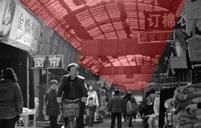


Eave elements are extracted from the historic buildings to create a huge eave for activities and rest for the surrounding residents.Create a common, collective memory activity space under the eaves.

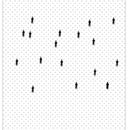







I used to walk in the laneway, but there was no space for me to rest. Because of the lack of space and the lack of community, the neighborhood lacks a bit of energy.


Grandma Li (65)
Live in the laneway nearby. Like going out for shopping.
Most of the people living here are old people and we know each other very well. It is a pity that there is not a collective place for our entertainment and leisure. We like the sun, but it's better not to be out in the open, because then we cangather in the rainy day.

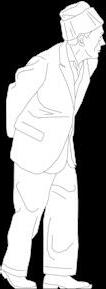

Live in the laneway nearby.
Like playing cards with neighbours after dinner.







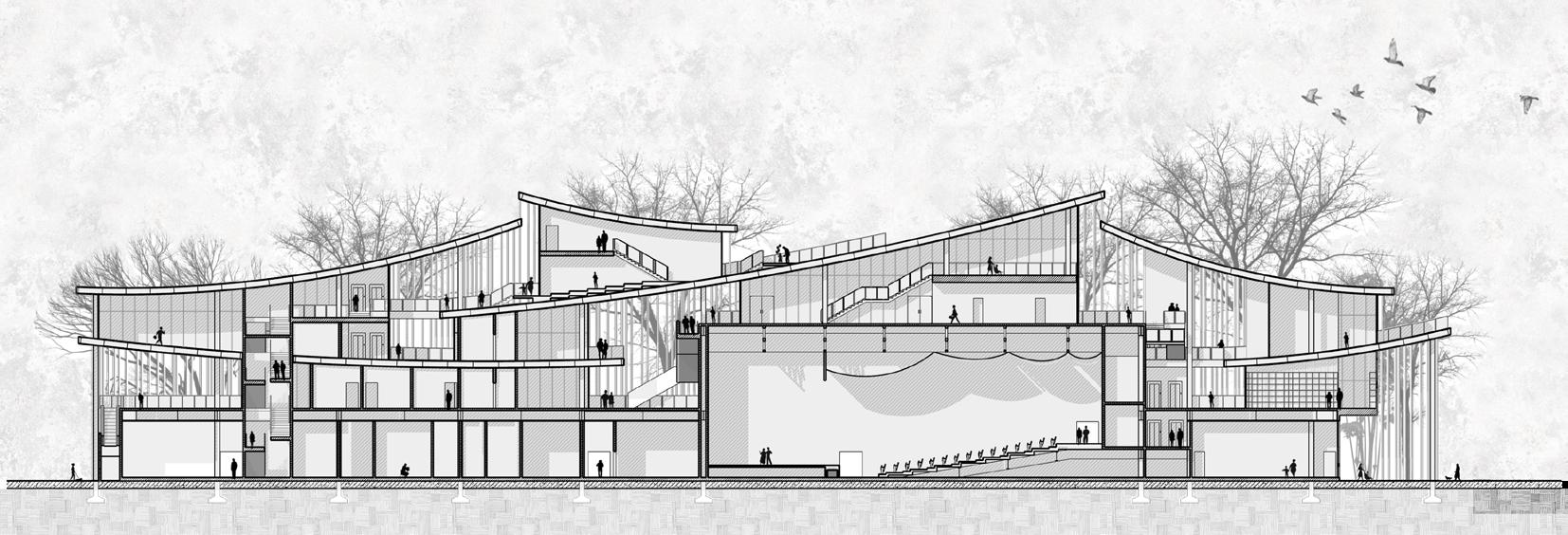

04 SPIRAL HOUSE
A New Three-family Home in the Old Town
Individual Academic Work
Feb 2020 / Architecture Design 1

Course ID:29011210
Located in Nanjing, China
Supervisor: LIU Quan
Email: liuq@nju.edu.cn
This project was the first architectural design during the undergraduate period, and it was a preliminary attempt on the characteristics of architectural space and materials. The project is an in-depth analysis of the characteristics of the wooden structure and explores the possibility of using microscale gaps to create vibrant spaces. The project uses a series of Spaces to create a tightly connected yet well-spaced living space.
BACKGROUND

The project is located in the residential area of the old town of Nanjing. The surrounding buildings are closely arranged and generally consist of one or two story residences, which is a residential area with a long history in Nanjing city.


CONCEPT
The project seeks to connect the entire interior of the building through a series of paths, and the climbing floors simultaneously ensure the private progression of each space.



FAMILY
A family of three is the most common family formation among contemporary urban residents. The master of the project is in charge of the daily life of the family, the hostess is a writer, and they have a seven-year-old boy.



Filter of Sight
The diagonal grilles provide a balance between visual communication and privacy within the space. Communication and independence between family members are balanced.

PARENTS ROOM
CHILD ROOM
BATHROOM
CHILD ROOM


FUN SPACE
STUDY ROOM
BATHROOM
LIVING ROOM
STUDY ROOM



